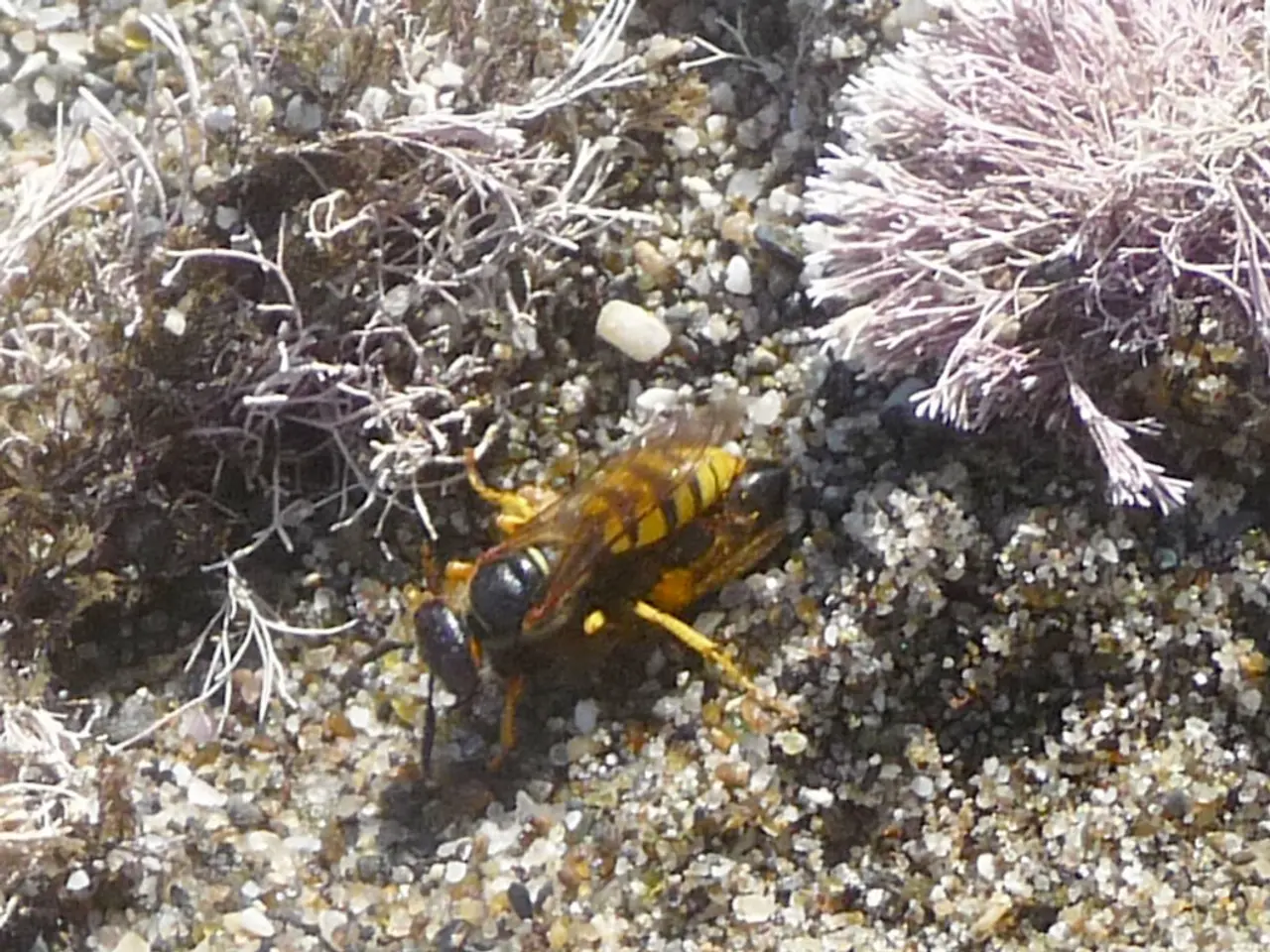Spreading rapidly is the most deplorable element in Lower Saxony
Asian Hornets Pose Threat to Beekeeping and Native Species in Lower Saxony
The Asian hornet (Vespa velutina) is rapidly expanding its territory in Germany and Lower Saxony, posing significant challenges to beekeeping operations and native species. This invasive species, known for forming larger colonies with few natural enemies, has already established a presence in Lower Saxony.
The Asian hornet preys on honeybees, threatening local beekeeping by reducing honeybee populations and weakening colonies. This predation disrupts pollination and can lead to economic losses for beekeepers. In addition, as an invasive species with no natural predators in Germany, Asian hornets can outcompete and negatively affect native insect species, potentially disrupting local ecosystems.
Recent reports from the Lower Saxony State Office for Water Management, Coastal Protection and Nature Conservation indicate an increase in Asian hornet sightings in the region, with over a hundred sightings in 2024. Experts are increasingly concerned about the spread of the Asian hornet, particularly during the longest summer phase of the year.
To help manage and potentially control the spread of Asian hornets, the Nature Conservation Association of Lower Saxony is asking citizens to report any sightings. Beekeepers and citizens who spot Asian hornets should document sightings (location, date, photos) and report them promptly to local nature conservation organizations or agricultural offices to support tracking and control efforts.
Those involved in beekeeping or biodiversity monitoring are advised to stay informed via local agricultural extensions or nature protection groups, which may offer updated guidelines and reporting channels. For the most accurate and current protocols on invasive species management and reporting, you can also contact Lower Saxony's official environmental or agricultural ministry websites.
It's important to note that the European hornet, an ecologically valuable species that contributes to pollination and controls populations of flies, horseflies, mosquitoes, wasps, and many other insects, is under threat from the Asian hornet. Citizens are encouraged to photograph hornet sightings to learn more about their spread and support conservation efforts.
Stay vigilant and help protect Lower Saxony's beekeeping operations and native species from the Asian hornet threat.
- The rapid expansion of Asian hornets in Germany, particularly in the field of environmental science, has introduced a new challenge to health-and-wellness areas such as beekeeping and mental health, as the loss of honeybee populations and disruptions in pollination can lead to economic stress for beekeepers and negatively impact mental well-being.
- In addition to affecting beekeeping and native insect species, the Asian hornet's invasion into the biodiversity of Lower Saxony may extend its impact into the domain of scientific inquiry known as space-and-astronomy, as changes in insect populations can indirectly influence the planet's ecosystems and, ultimately, the planet's overall health.
- To preserve the health-and-wellness of Lower Saxony's ecosystems, including the mental well-being of beekeepers and the broader community, it is crucial to stay informed about the Asian hornet and report any sightings to local authorities, following the guidelines provided by conservation associations, agricultural offices, and environmental or agricultural ministry websites.




